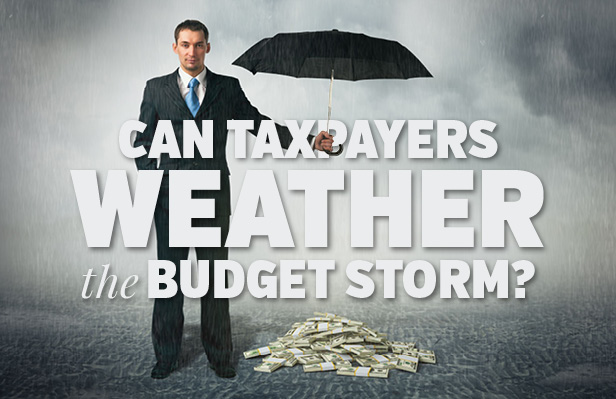Media

Gov. Wolf’s Borrowing Schemes Won’t Work
Gov. Wolf’s careless decision to overspend last year has played a significant role in this latest budget impasse. Frustrated with the pace of the process, the governor decided to turn to borrowing to circumvent the legislature.
Gov. Wolf's current plans to borrow are only necessary—according to his administration—to pay off bills incurred last year. But the governor could have avoided these bills if he performed his duty to keep the budget balanced. He not only failed to keep the budget balanced but spent $400 million more than the legislature approved.
Now the governor is pursuing bad policies to fix his mistakes. For instance, he would like to use the Pennsylvania Liquor Control Board (PLCB) as an ATM. The questionable legality of this move prompted former CF president Matt Brouillette, Rep. Jim Christiana and businessman Ben Lewis to file an emergency injunction to stop the governor from adding to Pennsylvanians’ debt burden.
[Wolf's] current plans to borrow are only necessary—according to his administration—to pay off bills incurred last year. But the governor could have avoided these bills if he performed his duty to keep the budget balanced.
If granted, the injunction would prevent Gov. Wolf from borrowing $1.25 billion from the PLCB, which is experiencing its own financial challenges. While the legality of the move is disputable, there’s no question this plan is a poor alternative to fiscally responsible reforms.
More borrowing inevitably leads to higher costs for taxpayers, which will only compound the state’s structural deficit—a problem Gov. Wolf claims he wants to solve. Yet, he is pursuing multiple borrowing schemes.
In addition to borrowing from the PLCB, monetizing the Farm Show Complex is on the table as well. This proposal would saddle taxpayers with additional costs for nearly 30 years.
The governor’s disappointing actions don’t stop there. He also vetoed the Human Services Code, which included a Medicaid work requirement for able-bodied adults. This requirement would have raised the incomes of nearly 500,000 people and reduced Medicaid costs.
The legislature is also considering borrowing before reform. They passed an unbalanced budget in 2016-17, which originally increased spending by $1.6 billion. Now, they’re considering a plan that could borrow $1.5 billion from the Tobacco Settlement Fund to help close a combined $2.2 billion deficit instead of taking more from shadow budget surpluses or privatizing liquor.
Borrowing isn’t the path to financial security or economic growth, and these actions reflect a disregard for the long-term fiscal health of Pennsylvania.
The state needs to control spending. Only then can we put Pennsylvania's fiscal house in order and improve the lives of all Pennsylvanians.